Summary
Struggling to beautify your home? Regina Doman offers that you might need to consider your parameters, say no to what doesn’t matter and focus on what does.Have you ever tried to write a sonnet? In sophomore English class, I once had to construct one.
After picking my topic and brainstorming a bit, I found I couldn’t use every beautiful word or catchy phrase I wanted, but only those words which fit the parameters of a sonnet.
Thus I discovered poetry is largely an exercise in limitation.
Creating a warm cheerful Catholic home is much like writing a sonnet. There are many admirable and beautiful furnishings out there, but not all of them fit your particular home. If you struggle with beautifying your home, you might need to consider your parameters.
Parameters in poetry and in-home decoration are not so many limitations as channel walls that can make you even more creative.
Customize Your Parameters
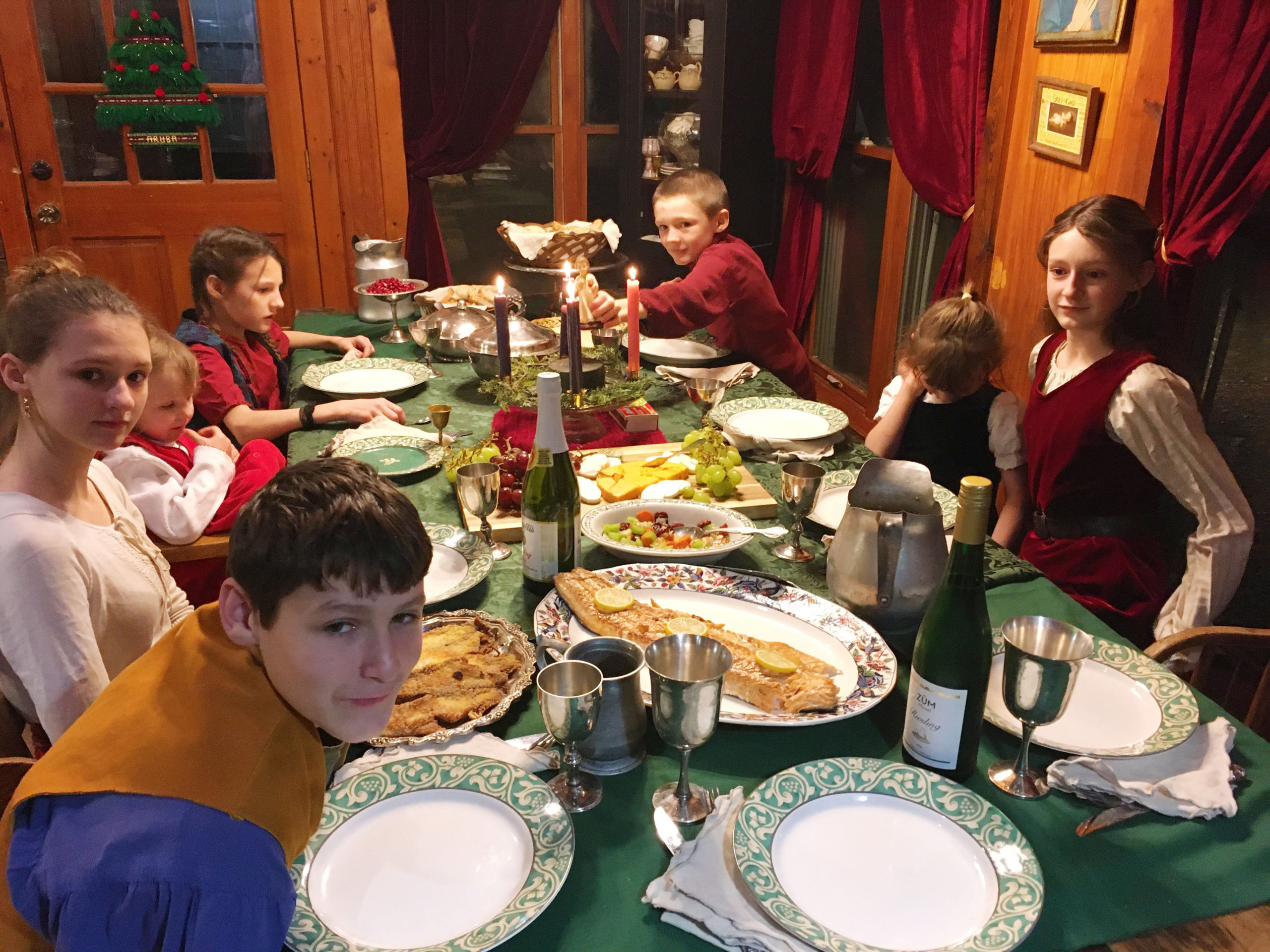
Of course, these parameters are often set by your situation: the type of house you have, the family members who live there, their ages and needs, your budget, and your and your spouse’s tolerance for chaos and desire for order.
Still, home décor is an important part of evangelizing others, particularly our children, whom we are evangelizing just as much – or more – as those outside our home.
I put a lot of stock in evangelizing the imagination of my children and our guests: I want my home to help them better love goodness. Beauty is the incarnation of goodness: it is meant to be what goodness looks, smells, sounds, feels, and tastes like.
As Dietrich von Hildebrand observed, when we sever the connection between goodness and beauty, goodness is in danger of becoming abstract and merely moral. Beauty has an evangelical power that should not be overlooked by the wise homeschooling parent.
So how do we create beauty, especially when finances are tight, children are boisterous and sometimes destructive, and demands on our time overwhelming?
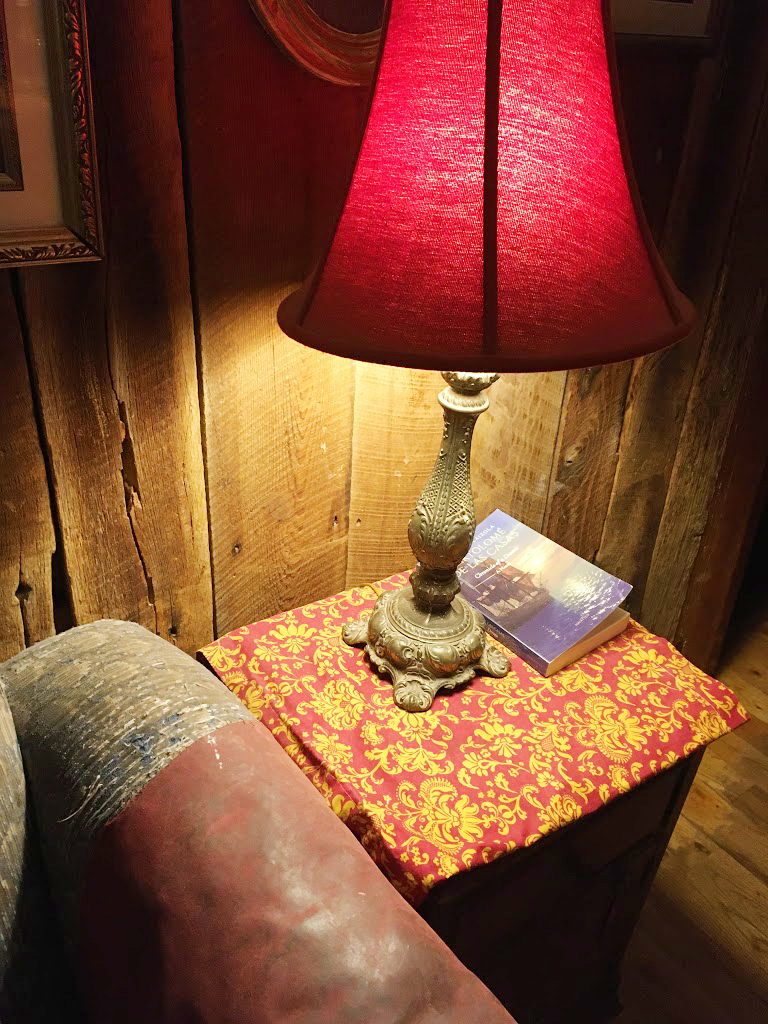
I have found a lot of peace in setting parameters for the decoration of my home. It simplifies choices and affirms my own instincts. While my personal parameters might sound pretty strict, they work for me.
They are not moral: they are based mainly on what I believe to be beautiful.
To discover your own parameters, you need to discover what you find beautiful: beautiful to the point of stirring your soul and raising your mind to God, or beautiful to the point of helping you relax and focus on the truly important.
Goodness is creative, just as God is creative, and can vary from person to person: just look at the incredible variety of the saints! So part of setting parameters is being attentive to what you find beautiful in a home until you can articulate or visualize your ideal.
I’ll tell you how I came up with my personal parameters as a way of hopefully guiding you to discover your own. I based them on a few strong negatives (sometimes it’s easier to discover what we want by identifying what we don’t like!) and a few flexible positives.
Again, these are my personal parameters for creating beauty in a very busy house of ten people with limited money: feel free to disagree with my parameters, particularly if it helps you discover your own!
First of all, I don’t like plastic. Period. I don’t like touching it or washing it or trying to keep it clean. Thankfully, it’s not a health issue for me. I simply don’t like it, so I radically limit it to my house. We do use plastic for food storage, picnics, and pool/outdoor toys, but that’s about it.
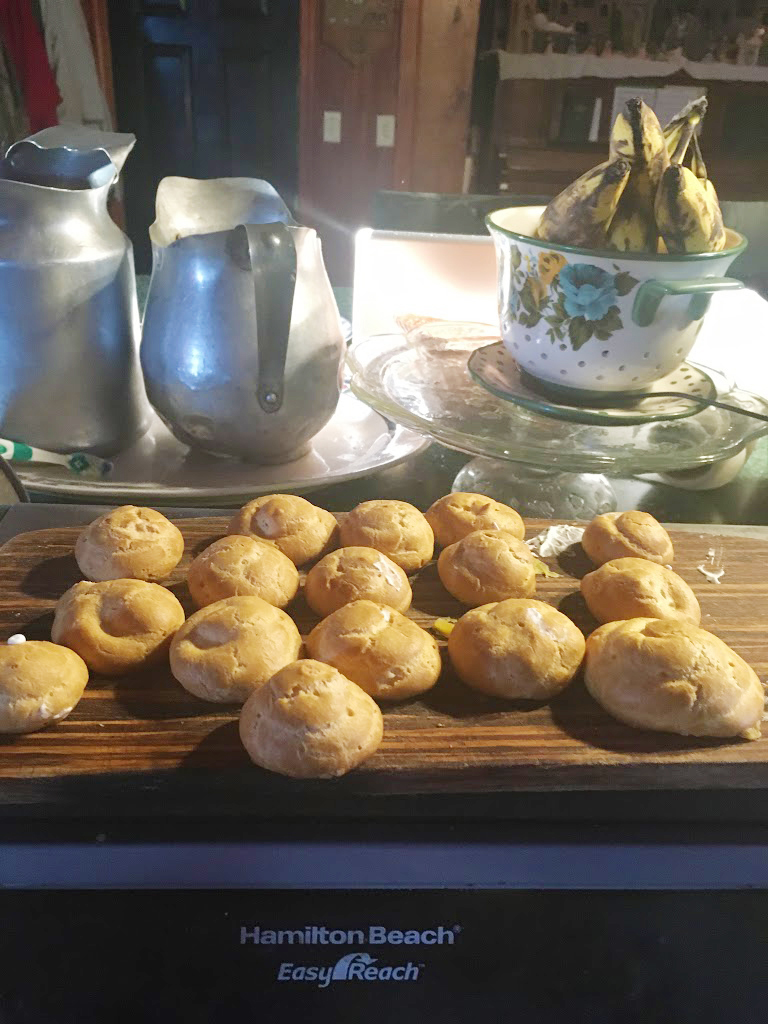
I fill my kitchen with materials and textures I love instead: pewter and enamelware for children’s cups, china, and earthenware for dishes. I have taught all my babies gracefulness by giving them inexpensive pottery plates and cups: when they break, the children learn that some things have to be handled carefully.
Plastic Begone
Early on I decided I would not have plastic toys. As the oldest of ten children, I spent so many Saturdays cleaning a basement that seemed to contain an acre of Fisher-Price, Happy Meal treats, and Legos that I decided I was done with plastic forever. After 25 years of marriage and ten children of my own, I feel content in that decision, which we have mostly kept.
I love wooden toys, which are either expensive or hard to find, so we have always necessarily had fewer toys, but my children play with them more. Plus I don’t mind that a cluttered corner of our playroom resembles a Tasha Tudor illustration.
Which brings me to the second related parameter of no logos or licensed characters on clothing or toys. This isn’t a moral parameter but an imaginative one. I am jealous of my children’s imaginations.
I don’t want them cluttered with other people’s stories, particularly ones that are banal or even morally suspect: I want them to create their own. So I give them toys that don’t have already-trademarked tales attached.
This has cut down on the visual noise in our home and led our children to even make their own toys, which I love.
Playful Parameters
A positive parameter: I am enormously fond of medieval culture and fairy tales. Our furniture is mostly bought second-hand or hand-me-down, but because my parameter was “fairy tale cottage” I said no to many items that didn’t fit.
Fortunately, children are hard on furniture, so getting rid of pieces that didn’t fit via rampant destruction has been easy. It has also made me think twice about spending money on “perfect” pieces in light of what they might look like five children later.
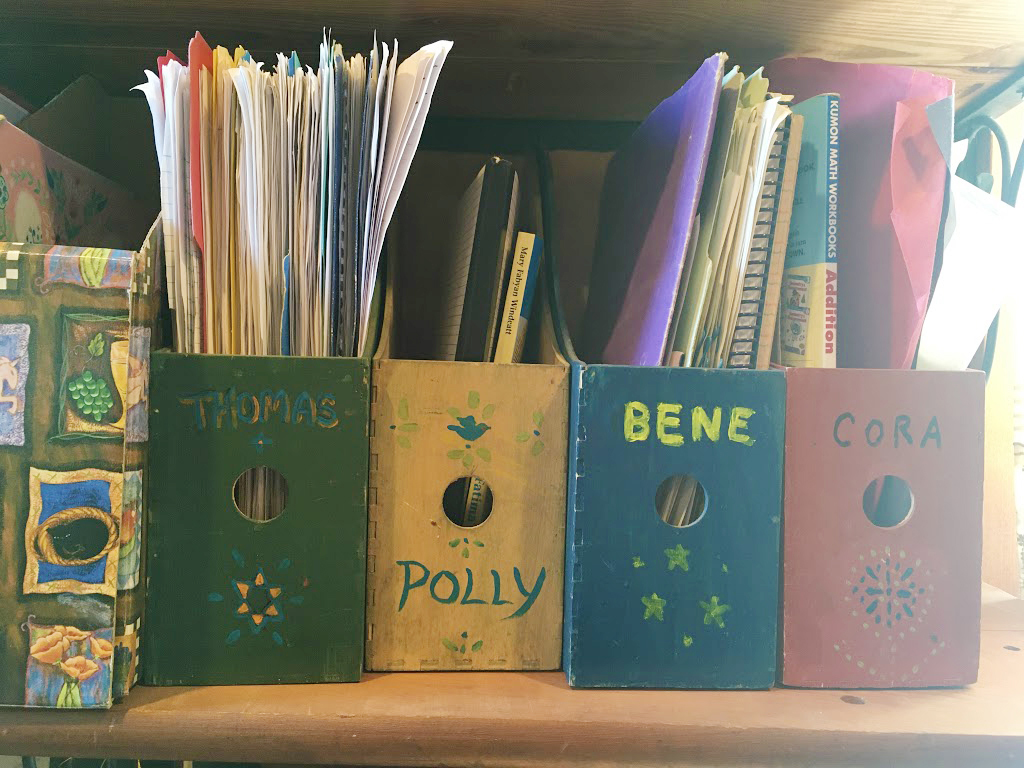
A definite parameter is my favorite color. When shopping or offering something for free, I choose the items that are in my palette of reds, blues, and greens. There’s nothing wrong with white couches and square plates: I like them in other people’s homes, but not for mine.
In all of this, I try to walk the fine line between love for beauty and snobbery.
Pride can poison what is otherwise beautiful and wholesome: I have to remind myself that this is all for nothing if my children end up as aesthetes who sneer at the bourgeois with their plastic toys.
Loving Christ is more than merely having good taste.
Which brings me to a complementary parameter: hospitality. Loneliness is endemic in our society, and I want to make it as easy as possible to welcome people into our home. This means keeping a certain standard of organization and scheduling a rough cleanup every day at 4 PM, which requires having smaller amounts of toys and clothing so that is possible.
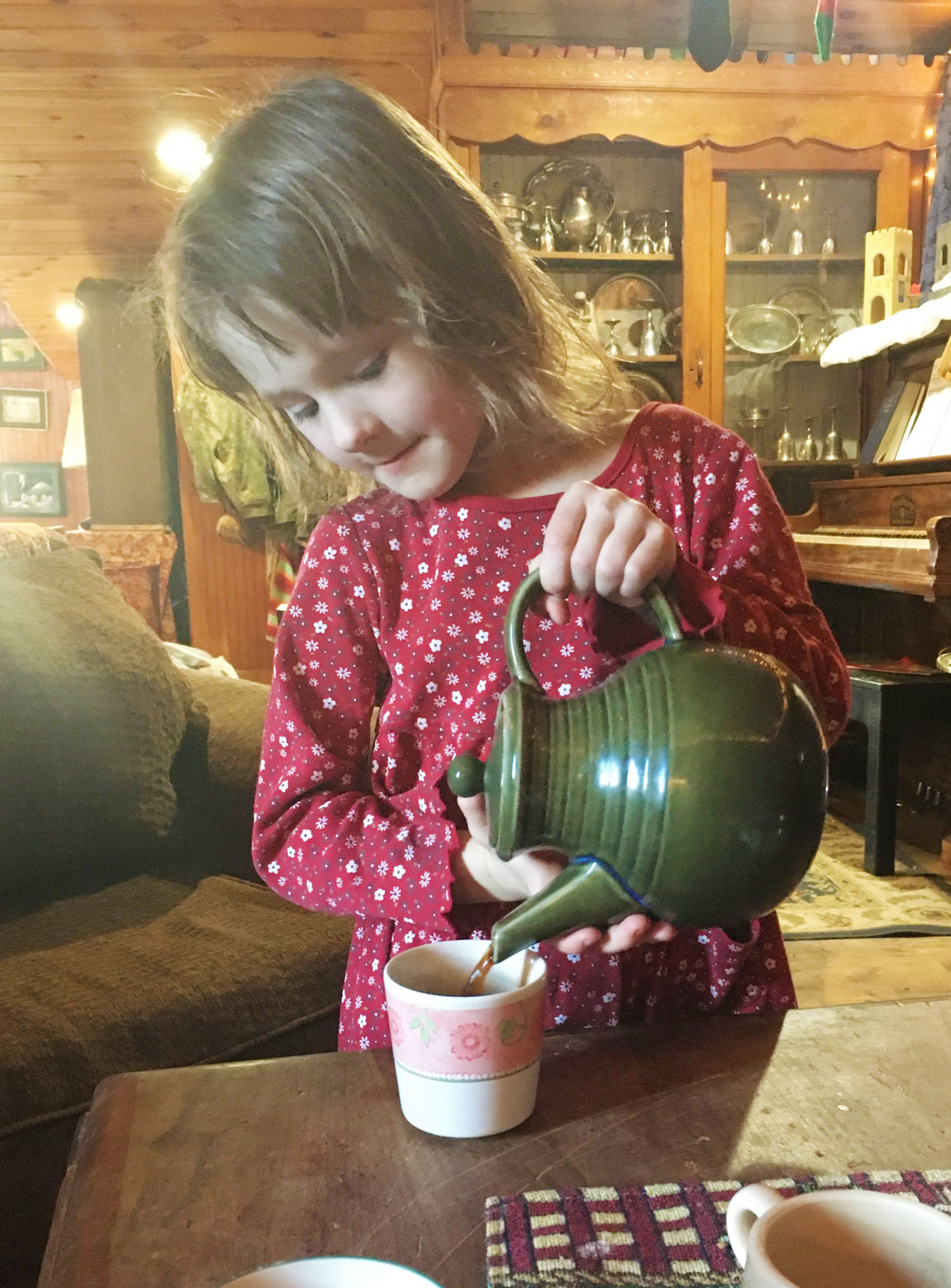
If each person in our family can reasonably be expected to manage their own belongings, life is easier, and I try to help them see that limiting stuff helps them maintain it more easily.
Creating beauty in the home is not a matter of having pristine furniture or following the latest trends, but a matter of evangelizing ourselves and our families in our vocation. Often it does mean saying no to what doesn’t fit, no matter what a good deal it is or who gave it to you.
Less stuff means more time and energy to focus on what matters: Christ in our hearts, offered to the world.

 Seton Magazine Catholic Homeschool Articles, Advice & Resources
Seton Magazine Catholic Homeschool Articles, Advice & Resources

